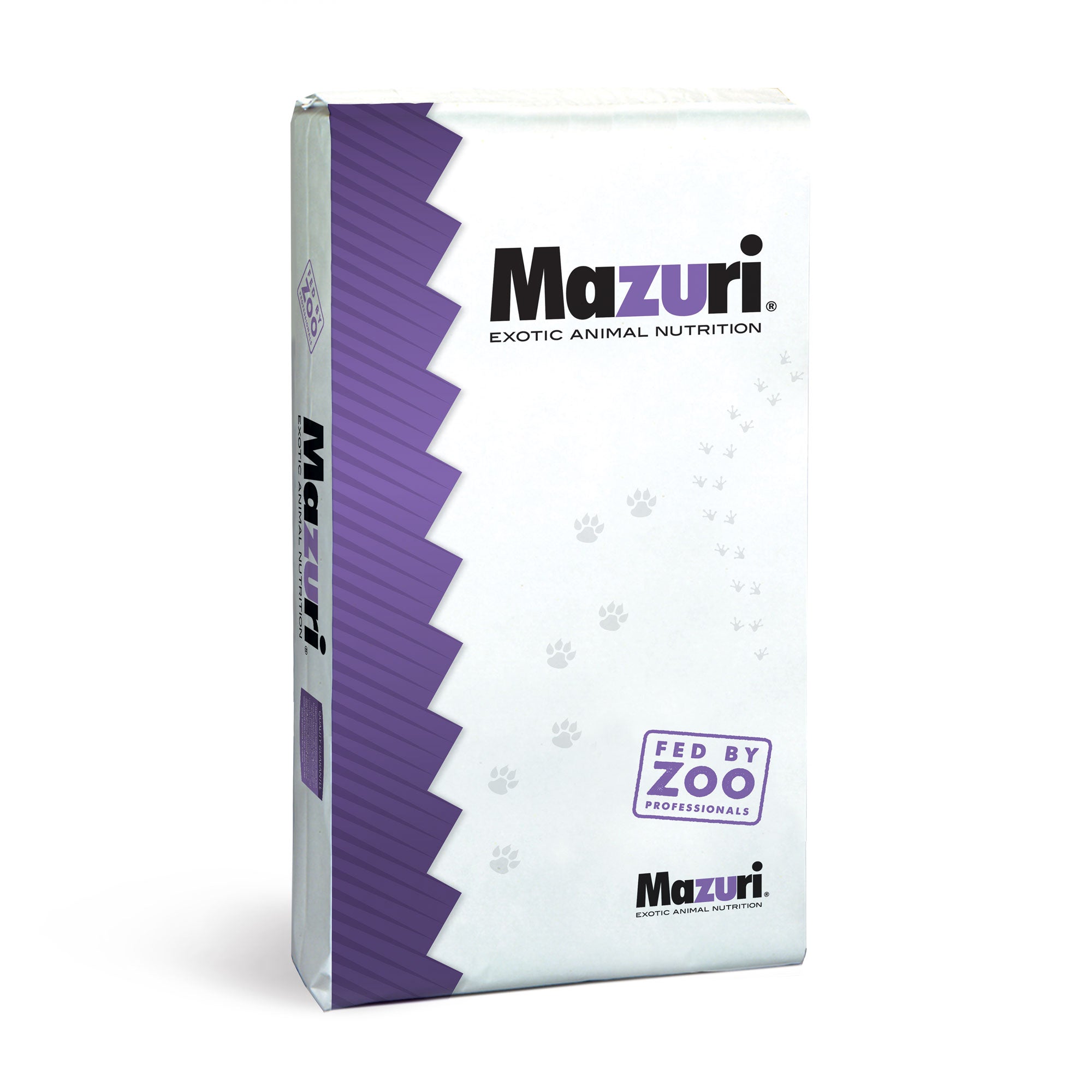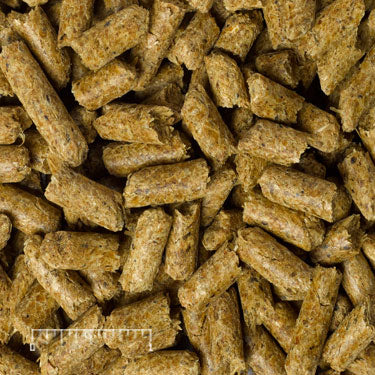Every exotic animal deserves the right nutrition
| Crude protein not less than Crude fat not less than Crude fiber not more than Moisture not more than Ash not more than Calcium not less than Calcium not more than Phosphorus not more than Sodium not more than Selenium not less than Selenium not more than Vitamin E not less than *Total Microorganisms not less than | 15.00% |
(Lactobacillus acidophilus, Lactobacillus casei, Bifidobacterium thermophilum, Enterococcus faecium)*
*Contains a source of live (viable) naturally occurring microorganisms.
Ground Soybean Hulls, Dehulled Soybean Meal, Oat Hulls, Wheat Middlings, Ground Oats, Ground Flaxseed, Wheat Germ, Dried Plain Beet Pulp, Cane Molasses, Soybean Oil, Dicalcium Phosphate, Calcium Carbonate, Lignin Sulfonate, Salt, d-Alpha Tocopheryl Acetate (Vitamin E), Dried Lactobacillus acidophilus Fermentation Product, Dried Lactobacillus casei Fermentation Product, Dried Bifidobacterium thermophilum Fermentation Product, DL-Methionine, Pyridoxine Hydrochloride, Dried Enterococcus faecium Fermentation Product, Choline Chloride, Magnesium Oxide, Vitamin A Supplement, Menadione Sodium Bisulfite Complex (Vitamin K), Preserved with Mixed Tocopherols, Vitamin D3 Supplement, Manganous Oxide, Rosemary Extract, Zinc Oxide, Ferrous Carbonate, Vitamin B12 Supplement, Citric Acid (a Preservative), Calcium Pantothenate, Biotin, Copper Sulfate, Thiamine Mononitrate, Nicotinic Acid, Riboflavin Supplement, Folic Acid, Zinc Sulfate, Calcium Iodate, Sodium Selenite, Cobalt Carbonate.
- Feed free-choice to kangaroos and wallabies of all ages, starting with joeys out of the pouch around 8 ½ months.
- Bottle-feeding joeys: introduce slowly into the joey’s diet once solid foods are being consumed.
- Provide pasture or high-quality hay – preferably grass hay – free choice.
- Alfalfa hay is not recommended as the calcium:phosphorus balance is not appropriate.
- Adult animals can be expected to consume between 1% and 2% of their body weight depending on their physiological state and level of activity.
- Fresh, non-toxic, and thorn-free branches may be an important component of the daily diet.
- Always provide plenty of fresh, clean water.
- Thoroughly wash feed and water bowls on a regular basis. It is always good practice to wash hands thoroughly after feeding and/or handling animals.
- This diet is not for human consumption.
Caution: Follow label directions: Feeding added selenium at levels in excess of 0.3 ppm in total diet is prohibited.
Storage Conditions
For best results, reseal the bag between uses or store contents of open paper sack in container with sealing lid. Store in a cool (75°F/24°C or colder), dry (approximately 50% RH) location free from rodents and insects. Do not offer moldy or insect-infested feed to animals as it may result in illness, performance loss or death. Freezing will not harm the diet and may extend freshness. Use within 1 year of bag manufacturing or "Best if Used By" date.
Ask Our Experts
Get nutrition advice you can trust from experts who understand the unique nutritional needs and behaviors of your exotic animals.
Get Advice
